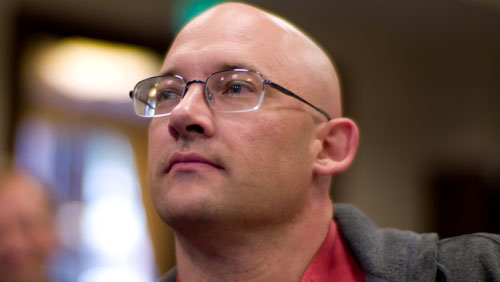Technology & Innovation
All Stories
“Watching television has been a sort of half-time job for every man, woman, and child in the developed world for, you know, for decades now,” says NYU Interactive Telecommunications Professor […]
David Brooks and Gail Collins take on New and Old Media in their ongoing conversation at the New York Times. The career journalists think beat reporting is still crucial to worthwhile journalism.
Edward Tenner wonders whether business models, like major engineering projects and government agencies, have their own failure timetables.
Harvard Business School Professor Ranjay Gulati doesn’t buy it when businesses today say they are “customer-centric”—because any company will say that they are. “It’s a platitude,” says Gulati. “There’s confusion […]
Amit Chatterjee, the CEO and founder of Hara Technologies, consults with companies all across the country about how to go green. He stopped by Big Think recently to talk about […]
While surveillance that results in a speeding ticket may curb our wayward morals, Internet surveillance has no such benefit. Beware the illusion of your public persona, says The Economist.
Slate recalls Marshal McLuhan’s distinction between hot and cool media to say that ink on paper is perceived differently than type on screen. One, therefore, cannot completely replace the other.
Humans are hard-wired to make bad investment decisions, says Legg Mason Capital Management’s chief investment strategist, Michael Mauboussin. It’s in our nature to follow along with a bearish or bullish […]
Tony Hsieh, the CEO of Zappos.com, believes the most important aspect of any company is its culture. That’s why he was so disappointed with his first company, LinkExchange—and why he […]
“The Supreme Court on Monday loosened the limits on the kinds of inventions that are eligible for patent protection,” reports The Washington Post. Intangible goods are increasingly eligible.
Starting today, the non-profit digital library Internet Archive will give the public access to over a million public domain books and thousands of contemporary copyrighted e-books. Copyright questions abound.
Our main budgetary issue is expected growth in entitlements spending, which is one key reason the retirement age should be raised to near 70. Gary Becker sets out the case.
Is financial illiteracy “rational ignorance”—inattention that is justified because the costs of paying attention outweigh the benefits? The New Yorker says no.
MIT researchers are advising the government to use natural gas as a low-carbon bridge to a cleaner energy society, but they warn renewables must be developed lest gas become a bridge to nowhere.
“Voluntary taxes offer a politically palatable way to raise additional revenue and perhaps even to strengthen Americans’ sense of patriotism and citizenship.” Pony up, says The Boston Globe.
The dispute between America’s proposed deficit spending and Germany’s belt-tightening grows larger as the nations meet at the G-20 summit. The world’s economy could be at stake.
A new technique for transferring data across fiber-optic lines could increase the speed of the Internet by 100 times because information need never be converted into electrical signals.
Environmental friendliness is an added bonus for consumers looking to save money by purchasing cars with smaller engines. American car companies are looking to Europe, says Wired.
Jon Wellinghoff, chairman of the Federal Energy Regulatory Commission, imagines a national clean-energy grid in the near future. Scientific American conducts an in-depth interview.
The G-8 should treat African development like an investment rather than a charity case, says the Christian Science Monitor. It may be an opportunity the industrialized world cannot afford to pass up.
Sarah Jessica Parker’s Manolo Blahniks are out and Grandma Walton’s sensible apron is in in The Economist’s depiction of the world in the aftermath of the age of easy credit.
From solar and hydrogen powered concept planes to better designed, more fuel-efficient standard aircrafts, the airline industry is slowly turning greener, says The Christian Science Monitor.
A federal judge has dismissed Viacom’s suit against Google’s You Tube for copyright violations. What does the verdict mean for the future of internet file sharing? Wired analyzes the court’s decision.
High school media literacy courses could build on civics lessons to nurture critical thinking and help bridge the digital divide, says The Atlantic; it’s increasingly difficult to separate fact from fiction.
When we asked author and Vanity Fair columnist Michael Wolff what’s he thought the future held for Rupert Murdoch, he came right out with it: “The future for Rupert himself […]
Media consultant Frédéric Filloux dissects the dire situation of the French press (generalizable to most western media?) and the likely fate of the flagship daily, Le Monde.
Dean Baker proposes ways to pay off the budget deficit that don’t include cutting social security: among them, a financial speculation tax and allowing the sale of generic prescription drugs.
“The United States is hopelessly dependent on credit. And like stopping other serious addictions, only one solution will work—go cold turkey. We should abolish credit,” says The Atlantic.
As quality information becomes more easily accessible to young people, the curious are going to become “hyper-educated” says Jesse Schell, professor at Carnegie Mellon University’s Entertainment Technology Center and CEO […]







